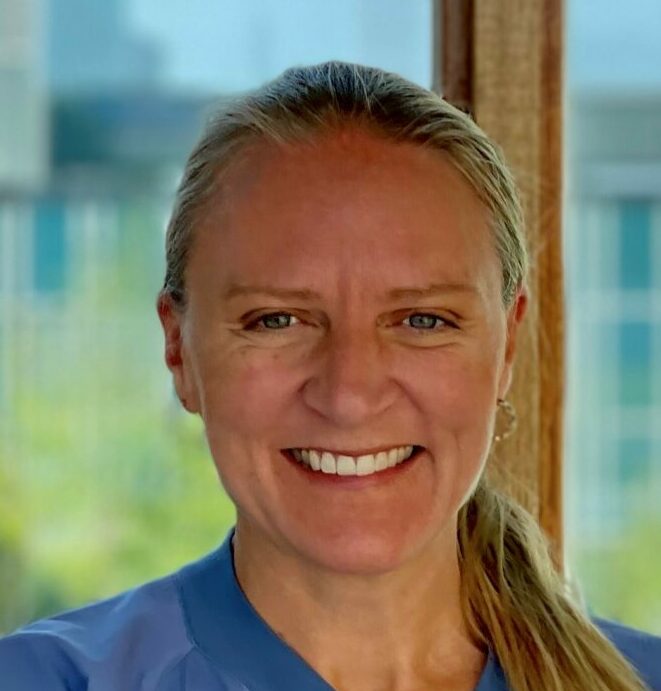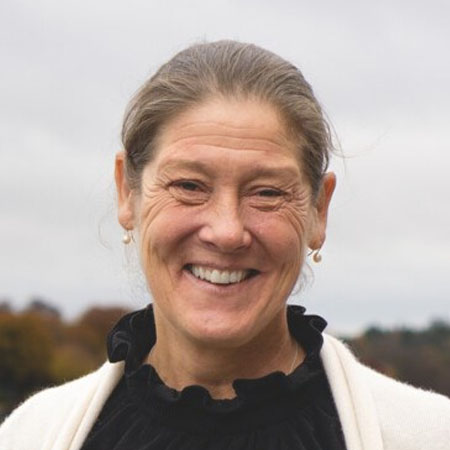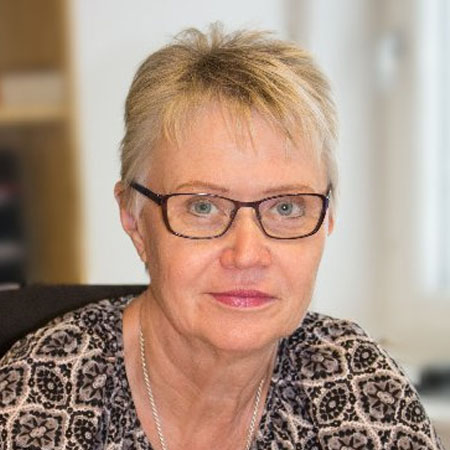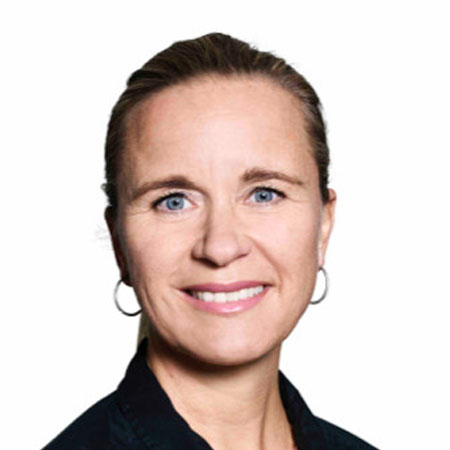Founded on research from
GODDESS ADHD
Gender-informed research to Overcome Diagnostic Delay and Emotional dysregulation through Self-awareness and Self-efficacy in female ADHD.
Empowerment & equal, evidence-based standard of care for female ADHD
Knowledge is power!
Self-efficacy through empowerment and self-awareness!
It’s not so much about how you feel, its more about how you are doing!
The male body has been, and still is, the societal and medical norm. But females are not just smaller men. Biological factors, such as sex hormones, influence risk for both physical- and mental health problems. However, research and mental health care is almost exclusively focused on boys and men. Gender bias, inadequate knowledge of biological sex differences and extensive lead times before research is implemented in standard of care have long-term consequences for girls and women.
Why bother?
ADHD is prevalent (3-9%), persistent (50-75%), and serious (8-13 years) reduced life expectancy. To mitigate psychosocial adversity and comorbidity associated with undiagnosed and untreated ADHD, those affected need to be detected and get access to adequately tailored, evidence-based treatment. Today boys are getting a mean head start of at least 4 years. This diagnostic delay occurs during formative years for academic- professional equality. Girls and women remain un- or misdiagnosed, struggle in school and peer relations, develop comorbid anxiety, depression or eating disorders, and are at risk for addiction, sexual victimization, and underaged parenthood affecting them and their loved ones in every aspect of life.
GODDESS ADHD Research
By bringing together multi-professional and methodological expertise we explore how biological sex and gender influence ADHD-symptoms and real-life relevant outcomes. The aim is to increase societal awareness, ignite precision medicine and improve standard of care for girls and women with ADHD. Our long-term goal is to close the health gap between males and females by decreasing the diagnostic delay, polypharmacy and multimorbidity through increased self-efficacy and appropriate access to health care for females with ADHD. We are confident that targeting biology as well as psychosocial wellbeing can improve functioning and reproductive outcomes in girls and women with ADHD generating positive effects on physical and mental health in generations to come!
The GODDESS ADHD Crew
Lotta Borg Skoglund, Helena Kopp Kallner and Lisa Thorell are the principal investigators of this international trans-professional research group involving researchers from child-, adolescent-, and adult psychiatry, gynecology, epidemiology, development psychology and social sciences aiming to improve mental health and reproductive outcomes across the female lifespan. We share the holistic, empowering, and evidence-based focus on women’s health, women’s rights, and neurodiversity. Through active communication with patients, their loved ones, and the society at large we wish to contribute to the dissemination of research findings, decreased stigmatization and bridging of important public knowledge gaps on mental and reproductive female health.
Principal investigators
Postdoc researchers
PhD student
Senior researchers
Collaborating researchers
Our Scientific Advisory Board
Our scientific expert panel consists of internationally recognized researchers guiding our strategic methodological choices and ethical considerations.
Our Stakeholder Advisory Board
All research and innovations developed should be aligned with current and future standard of care. To our help we have:
Our Lead Patient Board
All our research is guided by and intimately tailored according to the voices of girls and women with ADHD.
More About Us
Lotta Borg Skoglund
- Senior consultant of general medicine and psychiatry and associate professor in psychiatry, Department of Women’s and Children’s Health at Uppsala University and WOMHER, Uppsala, Sweden. Lotta’s research focus on biological sex influence specific ADHD traits, symptom severity and comorbid conditions. She holds several commissions of trust including for the Swedish Medical Product Agency (Läkemedelsverket), the National Patient Association (Attention), the Swedish National Board of Institutional Care (SiS) and the non-profit organization MIND. Lotta aims to be an active voice in the current opinion through social media, TV, press and international collaborations. She is the founder of Smart Psykiatri and Letterlife.
Helena Kopp Kallner
- Senior consultant of obstetrics and gynecology, senior lecturer and head of the clinical trials unit and research group leader at the Department of clinical Sciences Karolinska Institutet, Stockholm Sweden. Her research focus on sexual and reproductive health and safe contraceptive methods to prevent sexual transmitted diseases, abortion, and unplanned/unwanted births. Helena is the principal investigator for several international studies and a leading role in international research collaborations for reproductive health. She is president of the family planning working and reference group pf the Swedish Society of Obstetrics and Gynecology and president of the European Society for Contraception and Reproductive Health. She is a frequently engaged lecturer in abortion, contraception and gynecological treatment and a media profile advocating for equal standard of care, gender informed policy making, women’s health and women’s rights.
Lisa Thorell
- Department of Clinical Neuroscience, Karolinska Institutet, Stockholm Sweden. Lisa is head of a research group focusing on ADHD across the life span. More specifically she investigates executive function deficits and emotion dysregulation in ADHD and how this relates to daily life functioning such as academic achievement, peer problems and behavioral addictions. Lisa is frequently engaged in the societal and scientific discussion regarding potential risks and benefits with digital media and the use of digital learning tools in school. She is a member of The EUropean NETwork for HYperkinetic DISorders (EUNETHYDIS) and is the initiator or several international multicenter research collaborations.
Post Doc Darko Sarovic MD, PhD, BA and MSc. Department of Radiology, Harvard Medical School and Massachusetts General Hospital, Boston, Massachusetts.
- Darko is a resident in diagnostic and interventional radiology at the Sahlgrenska University Hospital, Bachelor and Master of psychology and postdoctoral research fellow at Harvard Medical School and Massachusetts General Hospital. Darko earned his PhD in child and adolescent psychiatry and is frequently teaching medical students and supervising graduate theses at the Sahlgrenska Academy and Chalmers University of Technology. His current work involves studying the neurobiological processes underlying social communication and development of theoretical models through reconceptualization of neuropsychiatric conditions, traits, and risk factors.
Post Doc Niklas Envall PhD and Midwife Project Manager
- Senior lecturer at Dalarna University, affiliated researcher at Karolinska Institutet and Uppsala University. Niklas is a registered nurse midwife, and his research area is mainly within contraception and prevention of unwanted pregnancy. He has a focus on contraceptive counseling and leads a post-doctoral project concerning a new method for pain relief with insertion of intrauterine contraception. He is also the national principal investigator in a transregional project concerning counseling for contraceptive use postpartum. Niklas will lead the qualitative parts of the GODDESS project and co-supervise the PhD-student.
Our Previous Work
We describe associations and gender specific aspects of ADHD, comorbidity, risk-taking behaviors, and adverse psychosocial outcomes. To this end we have combined and will combine different scientific methods and used different study designs including large scale pharmacoepidemiologic studies, qualitative research, and randomized controlled trials. In addition, we contribute to the general dissemination of research findings and public awareness of ADHD and female reproductive health through popular science books, reports, and interactive social media presence.
Epidemiological research
By linking different information on individuals from a total population in for example a municipality or country we can explore different outcomes on a group level. In this way we get an overview of our research questions and the magnitude of the problem. From the large-scale population-based epidemiological studies we have performed and participated in we show that females with ADHD, (compared to unaffected females and/or same aged males) have:
Qualitative research
Semi structured interviews are a good way of exploring the needs and expectations in different target groups. From qualitative studies we get a deeper understanding of the real-life challenges and potential barriers and opportunities in the current standard of care. These studies also guide valid and relevant outcome measures in our epidemiological and clinical studies. Our qualitative studies show that:
Reviews
Public work
We aim to raise awareness, educate the public and empower girls and women beyond and outside the academic word trough:
- The popular science book “ADHD in girls and women – Connecting the dots” by Lotta Borg Skoglund published in the UK, the US, Korea, New Zeeland, Australia, and Scandinavia. Adhd – från duktig flicka till utbränd kvinna – Natur & Kultur (nok.se).
- International speeches and opinion making during 2023 include ITAKOM Edinburgh, UK 2023, Almedalen Visby, Sweden, Folkemœdet Bornholm, Denmark and ADHD World Congress Amsterdam, The Netherlands.
Action and Future Directives
Equal, evidence based, and timely interventions are at the core of sustainable and effective health care. To this end we realize that we need to do more than just publish research and raise awareness. We aim to let our research inform the development of the first precision health tool for female mental health, Letterlife. Our aim is to create a platform where individualized, real-life relevant data is used to:
- Improve medical decision making in standard of care.
- Encourage safe and effective self-care for girls and women with ADHD.
- Allow sufficiently powered and adequately designed, highly granulated real-life data for research.
In essence:
- We think that by combining technology and neuroscience, we can foster self-awareness, self-efficacy and empower girls and women with ADHD to stay actively engaged, and in charge, of their bodies, minds, and hormones.
- We believe that a co-creating process involving lead patient users, patient organizations, healthcare professionals and researchers have the best potential to detect, predict and treat female specific mental health challenges across the lifespan.
- We predict that individual information, collected and validated though active and passive daily monitoring via Letterlife will generate substantial value and be critical for attaining our long-term goals of improving physical, mental, and reproductive health outcomes in girls and women with ADHD.
- We hope to contribute to the development and evaluation of the Letterlife vision of a user-friendly and holistic, digital tool to improve safety and efficacy, reduce diagnostic delay and societal costs, mitigate comorbidity and polypharmacy.
- We know that if we can improve the reproductive outcomes of female ADHD by preventing unwanted teenage births and obstetric risk factors such as substance use, support females during vulnerable periods such as puberty, preg
Epidemiological studies in pipeline
We are currently performing epidemiological studies on ADHD and:
- PREDICTIVE EPIDEMIOLOGICAL MARKERS for ADHD diagnosis
- ENDOMETRIOSIS
- MENOPAUSE
- ABORTION (contraception post abortion, re-abortions)
- SEXUAL VICTIMIZATION
- MATERNAL HEALTH CARE
- DELIVERY MODE (pain medication, complications)
- PMS/PMDS
- VULVODYNIA
- SEXUALLY TRANSMITTED DISEASES
- POSTPARTUM & LACTATION
- IVF
- CHRONIC FATIGUE, EDS, POTS, POST COVID & BURNOUT
Letterlife proof of concept studies
The proposed LETTERLIFE RESEARCH PROJECT aims to improve and tailor effective health care for girls and women with ADHD. We hypothesize that a digital tool for self-monitoring of relevant real-life individual data related to ADHD-symptoms, cognitive function, and hormonal status can increase the focus on research driven, co-created precision health. The goal is to advance knowledge and standard of care beyond the male norm, to detect female specific challenges and comorbidity and reduce long-term adverse consequences for girls and women with ADHD by:
- Detecting how hormonal status is associated with ADHD-symptoms and lifestyle factors across the menstrual cycle.
- Reducing the time to detection, confirmed diagnosis and treatment for girls and women with ADHD.
- Improving the shared decision making and consequently psychiatric and reproductive outcomes in primary and specialized healthcare (psychiatry and gynecology).
- Improving psychiatric and reproductive outcomes in females with ADHD through self-awareness and improved self-care.
The proposed project addresses the following research questions:
1. What is the knowledge and experience of gender specific challenges, barriers to current standard of care in ADHD, with regards to quality of life, pharmacotherapy, comorbidity among females with ADHD and health care professionals?
2. What are the attitudes towards sharing personal data between patients (females with ADHD)?
3. Can a digital tool for auto- and self-monitoring of ADHD-symptom, cognitive profile, hormonal status, and relevant lifestyle factors developed in collaboration with lead users:
- Shorten time to detection, diagnosis and treatment for girls and women with ADHD?
- Increase efficiency and precision of the clinical decision making in psychiatry and gynecology?
- Increase compliance and inform personalized dose-regimen of ADHD-medication?
- Increase the use and compliance of tolerable and safe contraceptives?
- Decrease polypharmacy?
- Improve relevant real-life outcomes (quality of life, somatic-, psychiatric-, and reproductive health, through self-care?)
Furthermore, the project address:
- If individual cognitive profile and ADHD-symptoms are associated to quality of life, somatic-, psychiatric-, and reproductive health outcomes?
- If hormonal fluctuation across the menstrual cycle and/or hormonal contraceptive use associated to quality of life, somatic-, psychiatric-, and reproductive health and individual cognitive profile, ADHD-symptoms, and pharmacological treatment response?
The proposed research aims focus on closing the health gaps between females and males with ADHD. Critical for attaining the long-term goals, is to decrease the diagnostic delay, mitigate multimorbidity, decrease polypharmacy and improve reproductive health through appropriate access to effective and informed health care for girl and women ADHD. The specific aims are:
- To prevent multimorbidity and polypharmacy through early detection and improved access to health care services by:
- Identify barriers to access health care services and how they influence risk for multimorbidity and polypharmacy.
- Piloting an intervention (Letterlife) to facilitate access to healthcare and increase self-care.
- To prevent multimorbidity through modifiable risk factors by:
- Understanding risk and protective factors underlying multimorbidity and polypharmacy through a mixed method design of epidemiological-, clinical-, and qualitative studies.
- Identifying novel prevention targets and optimizing lifestyle factors as an intervention to prevent multimorbidity and polypharmacy.
- To move toward prevention and prediction medicine by improved clinical decision making, informed self-care and identification of individuals who may benefit from individualized pharmacological approaches (i.e., cyclic doses, tailored reproductive counselling and timely hormonal therapy).
- To disseminate insights gained from aims 1-3 and accelerate gender informed precision health for female ADHD in patients, future research, and clinical practice by:
- Developing accessible, brief educational material for target groups.
- Developing Massive Open Online Courses for clinicians to raise awareness around hormonal and lifestyle factors and improve access to health care.
- Organizing events, seminar series and conferences to disseminate results.
- Publication of research findings in open access peer reviewed scientific journals.
Methods & Data Sources
The VAL-registry is a population-based data set with information on all Stockholm County healthcare between 2011 to 2021 including 85,330 with ADHD (37,591 females) and 426.626 population representatives without ADHD matched by age, sex, and socioeconomic status.
The Letterlife technology is developed by lead patient users, researchers, and health care professionals through a novel technological approach for prospectively collecting detailed, frequent, longitudinal real-life data on individual- and gender specific ADHD-symptoms, cognitive functions, and sex hormone fluctuation trough active day to day prompters and passive remote monitoring. The qualitative studies will, together with validated screening/assessment scales and diagnostic tools, inform the final decision on the most clinically relevant outcome measures.
Study 1 & 2 is semi structured interviews with healthcare professionals (physicians, nurses, midwifes and psychologists) and females with ADHD in outpatient clinics in Sweden, Norway, Finland, and Denmark.
Study 3 is a prospective observational non-randomized, non-interventional study, using Letterlife technology and smartphone sensors. Remote measurement carries out unobtrusive, real-time data collection on multiple parameters, including individual lifestyle factors, daily functioning, adverse health outcomes, and pharmacological effects over a period of 3 months, using informative periods of predictable sex hormone fluctuations.
Study 4 explore if self-recorded prospective data through Letterlife can be used to inform clinical decision making in screening and assessment before ADHD-diagnosis. The study is conducted in primary care settings where participants are randomized to Letterlife-use or treatment as usual.
Study 5 explore if self-recorded prospective data collection via Letterlife can improve clinical decision making and mitigate negative outcomes through improved standard of care and self-care for female ADHD. Primary outcomes are quality of life, everyday functioning, and life-style factors (diet, exercise, sleep, substance use, social/digital connectivity, economic decision-making) and everyday functioning (work/school attendance) depending on the outcomes of Study 1-2. All participants are blinded to self-collected data the first 3 moths when a random sample of 50 % get access to and can share graphic visualization of individual data with their health care contacts.
Studies 6 & 7 explore subjective user experience and feasibility of implementing Letterlife as part of standard of care for female ADHD in both health care professionals and girls and women with ADHD trough semi-structured interviews.
Our Funding Sources
Tham Family Foundation
- Philanthropic funding of 4.000.000 SEK to Lotta Borg Skoglund and Uppsala University.
Susanne Hobohms Stiftelse
- Philanthropic donation of 900 000 SEK to Lotta Borg Skoglund and Helena Kopp Kallner.
Swedish Society of Medicine (Söderström – Königska Foundation)
- Post Doc Grant of 125.000 SEK to Lotta Borg Skoglund and the project “Sexual risk-taking, hormonal contraceptives and ADHD at Swedish youths' clinics”.
ALF Postdoc Grant
- Post Doc Grant of 700.000 SEK to Helena Kopp Kallner Karolinska Institutet and the project “Sexual risk-taking and hormonal contraceptives in youths”.
Sence & Takeda
Financial support for the statistical work by Sence AB for the study “Time After Time: Failure to identify and support females with ADHD.
Disclaimers / Conflict of Interest
Lotta Borg Skoglund is founder and owner of SMART Psykiatri (a private Swedish clinic for assessment and treatment of ADHD in children and adults) and Letterlife (a digital tool for screening and precision health for female ADHD). Advisory boards, invited speaker, scientific meetings and courses sponsored by for Shire/Takeda, Nordic Drugs, UCB Pharma, DNE Pharma, Novartis, Evolan, Lundbeck A/S and Medice. PI for research contracted by Takeda. Royalties from popular science and medical textbooks published in Sweden and internationally.
Helena Kopp Kallner receives honorariums for lectures on contraception, fibroid care, and endometriosis from: Abbvie, Actavis, Bayer, Gedeon Richter Exeltis, Nordic Pharma, Natural Cycles, Mithra, Teva, Merck, Organon, Ferring, Consilient Health. Expert opinion for: Bayer, Evolan, Gedeon Richter, Exeltis, Merck, Teva, TV4 och Natural Cycles, Pharmiva, Dynamic Code, Ellen, Estercare, Pharmiva, Gedea, Gesynta, Leia and Essity. Investigator in trials sponsored by Bayer, MSD, Mithra, Ethicon, Azanta, Gedeon Richter, Gedea, planned study for Organon, Pharmiva and Takeda. Courses sponsored by: Organon, Bayer and Gedeon Richter. Book chapters in: Guide for contraception (sponsored by Bayer) and in the Swedish medical Products agency recommendation for contraception and book chapters for 1,6 million club (Sweden's largest social club for women). President of the European Society of Contraception and Reproductive Health.
Associate Professor
Associate Professor
Professor
Project manager
Darko Sarovic MD PhD
Hedvig Engberg MD PhD
Professor
Professor
Associate Professor
Associate professor
Professor Henrik Larsson Epidemiology. Örebro University & Department of Medical Epidemiology & Biostatistics Karolinska Institutet
Professor Markus Heilig Addiction. Department of Biomedical & Clinical Sciences, Center for Social and Affective Neuroscience (CSAN)
Professor Sven Bölte Clinical Psychology. Head of Center of Neurodevelopmental Disorders Karolinska Institutet (KIND)
Professor Lisa Ekselius Psychiatry. Department of Women's and Children's Health, Uppsala University, WOMHER
Urban Pettersson Bargo Founder and head of We Mind Psykiatri
Malin Thorsell MD PhD CEO Capio BB St Göran
Ulrika By MD PhD
Lars Öhrmalm MD PhD Department Head PRIMA Barn- och vuxenpsykiatri
Sergej Andreewich MD Carema Hjärnhälsan
Anki Sandberg
Camilla Louise Ganzhorn Chair ADHD-Foreningen, The Danish National Patient Organisation
Melanie Mohlkert
Malin Ilbäcken Verksamhetsstrateg Kronofogden
Marie Thulesius
Sara Riggare
Isaac Riggare
Louise Hallin
Sophie Dow
Petra Kranz Lindgren

 Associate Professor
Associate Professor Associate Professor
Associate Professor Professor
Professor Project manager
Project manager Darko Sarovic MD PhD
Darko Sarovic MD PhD Hedvig Engberg MD PhD
Hedvig Engberg MD PhD Julia McTaggart MD
Julia McTaggart MD Professor
Professor Professor
Professor Associate Professor
Associate Professor Associate professor
Associate professor Professor
Professor Associate Professor
Associate Professor Associate Professor
Associate Professor Professor Henrik Larsson Epidemiology. Örebro University & Department of Medical Epidemiology & Biostatistics Karolinska Institutet
Professor Henrik Larsson Epidemiology. Örebro University & Department of Medical Epidemiology & Biostatistics Karolinska Institutet Professor Markus Heilig Addiction. Department of Biomedical & Clinical Sciences, Center for Social and Affective Neuroscience (CSAN)
Professor Markus Heilig Addiction. Department of Biomedical & Clinical Sciences, Center for Social and Affective Neuroscience (CSAN) Professor Sven Bölte Clinical Psychology. Head of Center of Neurodevelopmental Disorders Karolinska Institutet (KIND)
Professor Sven Bölte Clinical Psychology. Head of Center of Neurodevelopmental Disorders Karolinska Institutet (KIND)  Professor Lisa Ekselius Psychiatry. Department of Women's and Children's Health, Uppsala University
Professor Lisa Ekselius Psychiatry. Department of Women's and Children's Health, Uppsala University Urban Pettersson Bargo Founder and head of We Mind Psykiatri
Urban Pettersson Bargo Founder and head of We Mind Psykiatri Malin Thorsell MD PhD CEO Capio BB St Göran
Malin Thorsell MD PhD CEO Capio BB St Göran  Ulrika By MD PhD
Ulrika By MD PhD  Lars Öhrmalm MD PhD Department Head PRIMA Barn- och vuxenpsykiatri
Lars Öhrmalm MD PhD Department Head PRIMA Barn- och vuxenpsykiatri Sergej Andreewich MD Carema Hjärnhälsan
Sergej Andreewich MD Carema Hjärnhälsan  Anki Sandberg
Anki Sandberg  Camilla Louise Ganzhorn Chair ADHD-Foreningen, The Danish National Patient Organisation
Camilla Louise Ganzhorn Chair ADHD-Foreningen, The Danish National Patient Organisation  Melanie Mohlkert
Melanie Mohlkert  Malin Ilbäcken Verksamhetsstrateg Kronofogden
Malin Ilbäcken Verksamhetsstrateg Kronofogden Marie Thulesius
Marie Thulesius  Sara Riggare
Sara Riggare  Isaac Riggare
Isaac Riggare Louise Hallin
Louise Hallin  Sophie Dow
Sophie Dow  Petra Kranz Lindgren
Petra Kranz Lindgren